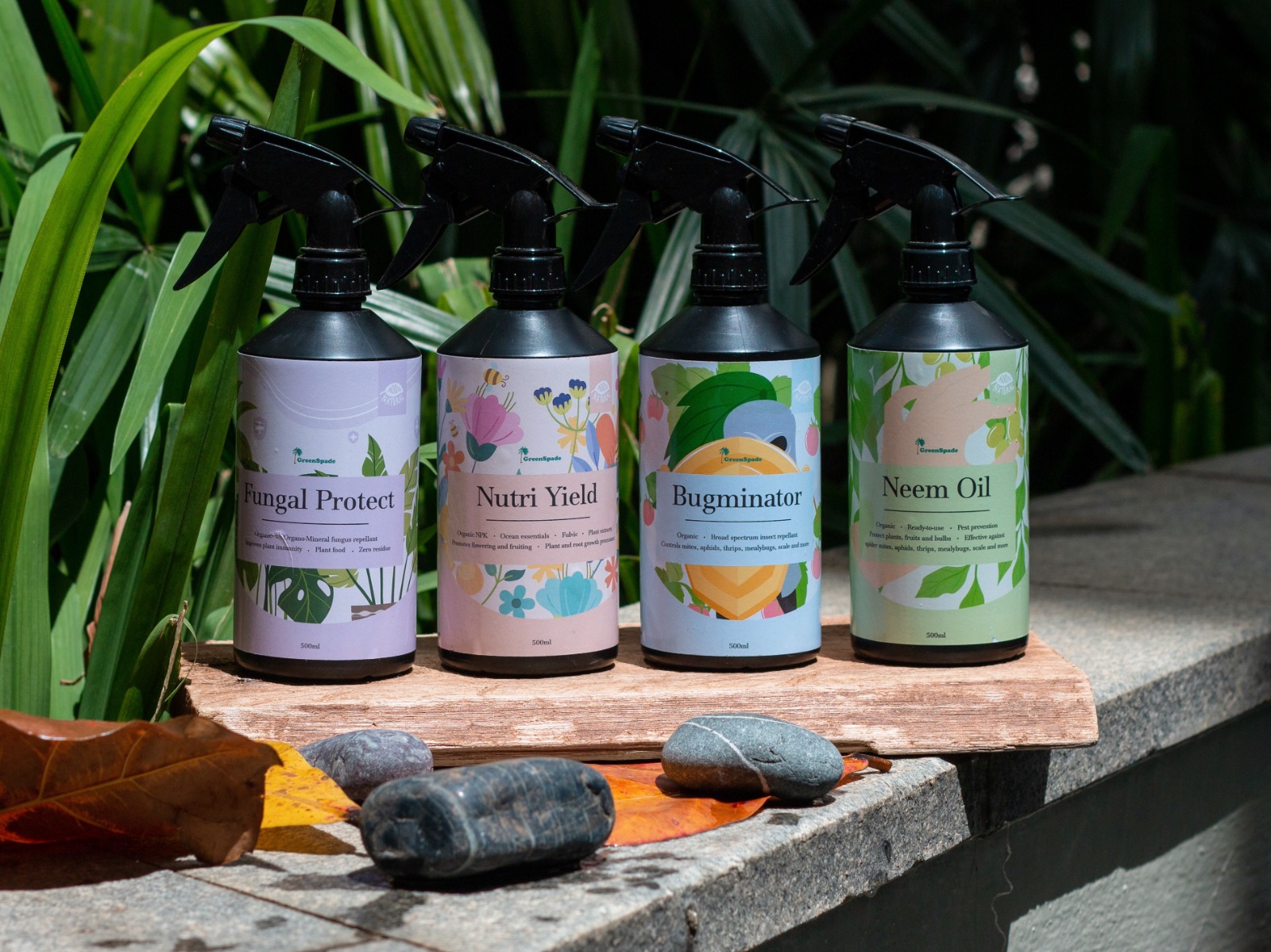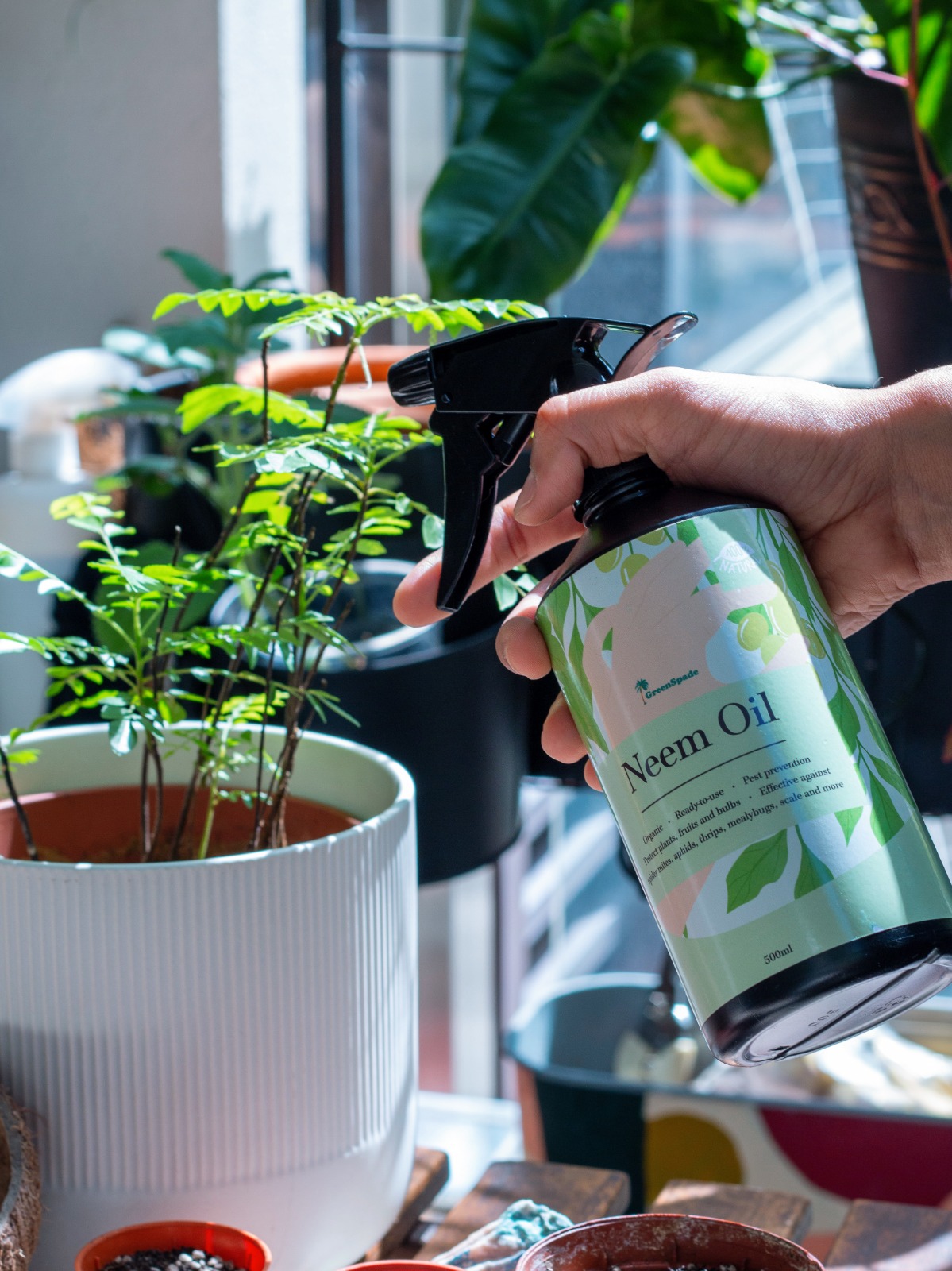It’s the sight we as plant hobbyists dread the most, finding weird moving creatures in and on our precious plants. There’s nothing to fret though, as it’s totally normal to see these tiny insects in your garden; they are part of the ecosystem after all.
However, we are sure that there’s a question that’s been bugging you, are these insects harmful, and what are some treatments to solve these “infestations” of sorts? Let us help you identify some of these garden pests that are commonly found in Singapore, and the methods to get rid of them.
The Need to Identify Plants Pests
Proper knowledge and vigilant observation are key to successful insect management for your garden, as they help nip potential plant pest problems in the bud. In terms of appearance, although they might look similar, these plant pests differ in their biology and feeding habits. Which is why it’s necessary to identify them correctly and not use a blanket approach as you might end up worsening the situation.
Additionally, it would be useful to recognise the type and signs of damage caused by these plant pests so that preventative steps can be taken. These harmful insects’ method of attacks are as follows:
Boring/Mining
The larval stage of some beetle, moth, weevil, and scale insect species cause damage by boring or mining into various parts of the plant such as the stems and leaves. Some borers even attack flowers. It’s near impossible to get rid of them entirely, so to reduce borer/miner populations, it would be advisable to regularly remove leaf litter to prevent the insects’ eggs from hatching. Some symptoms of a borer/miner infestation are miner trails on leaves, borer holes in parts of your plants, insect frass, sap secretion, and plant part dieback. If the infestation is bad, you can consider using an organic systemic pesticide on them.
Chewing
There are some plant pests with chewing mouthparts, they include insects such as caterpillars and grasshoppers. These insects chew and swallow soft plant tissue bit by bit and will cause a plant’s leaves or flowers to be in tatters. In severe cases, most of the leaf would be consumed. However, there are times whereby some insects are unable to chew in a complete and thorough manner, and the result is a lacy looking leaf. To address this issue, you will have to apply an appropriate amount of pesticide on the targeted surface, so that the insect will ingest enough pesticide residue to be killed.
Pierce-Sucking
The most harmful group of garden pests are those that feed on plant sap. They include the likes of Aphids, Leafhoppers, Mealybugs, and Spider Mites, and these invertebrates are common in Singapore. Unlike chewers, these plant pests are equipped with tube-like mouthparts that pierce into leaves and stems to feed on plant sap.
Damage caused by these insects appear as tiny spots where the plant was punctured. In more severe cases, deformity of the plants’ parts will occur. This is due to the introduction of the insects’ toxic saliva as it is pumped into the plant to facilitate sap withdrawal. This process of feeding will also result in the transmission of plant viruses and Mycoplasma-like organisms from infected plants to healthy plants. In the end, what happens is death, as the infected plants slowly wilt.
As these plant pests do not feed on the external parts of the plant, pesticides of the stomach toxicant variety will not really work well on these insects. In this instance, you can consider using Neem Oil. What Neem Oil does is that it functions like an insecticidal soap solution and has the added benefit of being a fungicide. Neem Oil is also useful as a systemic pesticide as it can be absorbed by and transported through plants. And once Neem Oil is in the plant’s system, it renders the plant toxic to these sap feeding insects, as they will be ingesting Neem Oil infused plant sap.
Why Use Organic Pesticide and How to Use It
With more people adopting a more sustainable approach to daily activities, it is no wonder that organic pesticides are used instead of synthetic ones. The benefits of using organic pesticides are immense as it is kinder to the environment as it does not introduce foreign chemicals into the soil and your plants. Using organic pesticides also reduces one’s exposure to potentially harmful chemicals.
As for usage, good spray coverage is important as not all the pesticide reaches the targeted insects. Which is why, when using the spray bottle, ensure that it is evenly distributed and delivered across a wide surface area to ensure success.
Say Goodbye to Plant Pests
With Greenspade’s range of organic pesticides, you can say goodbye to your plant pest related troubles and enjoy your garden without having to share it with pesky critters that threaten to destroy your precious crops. Check them out today and help your precious plants grow healthier and stronger!


